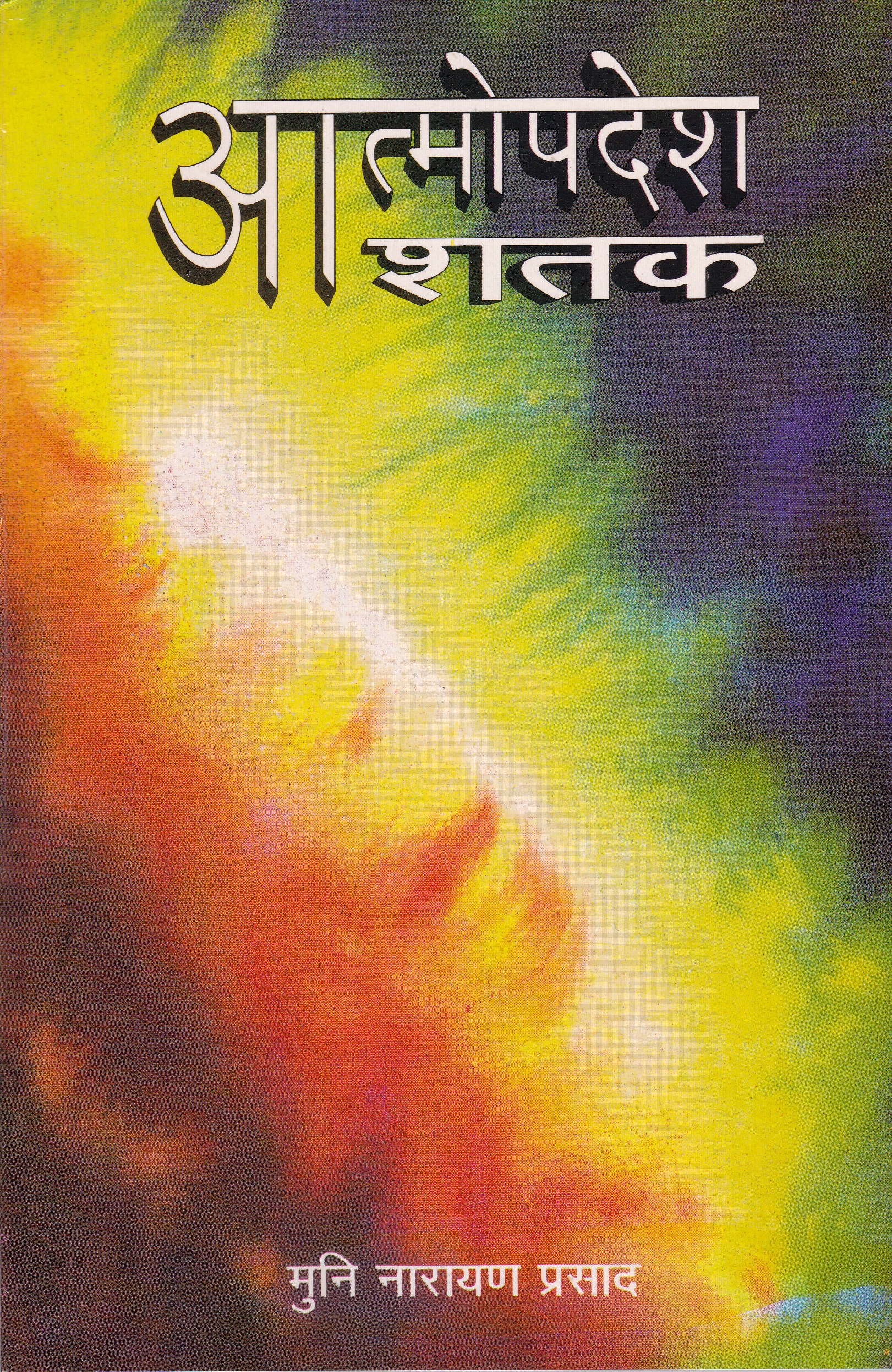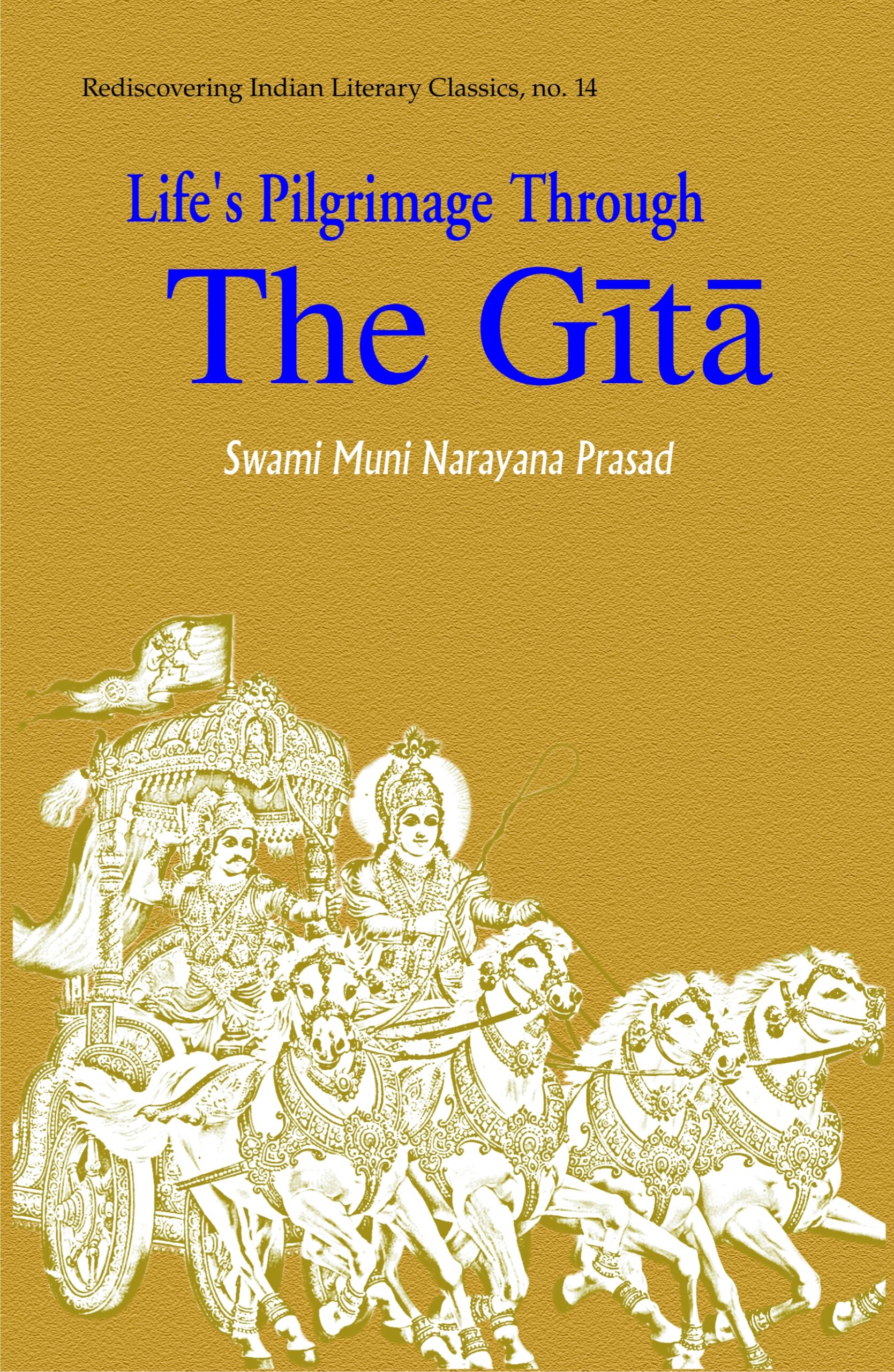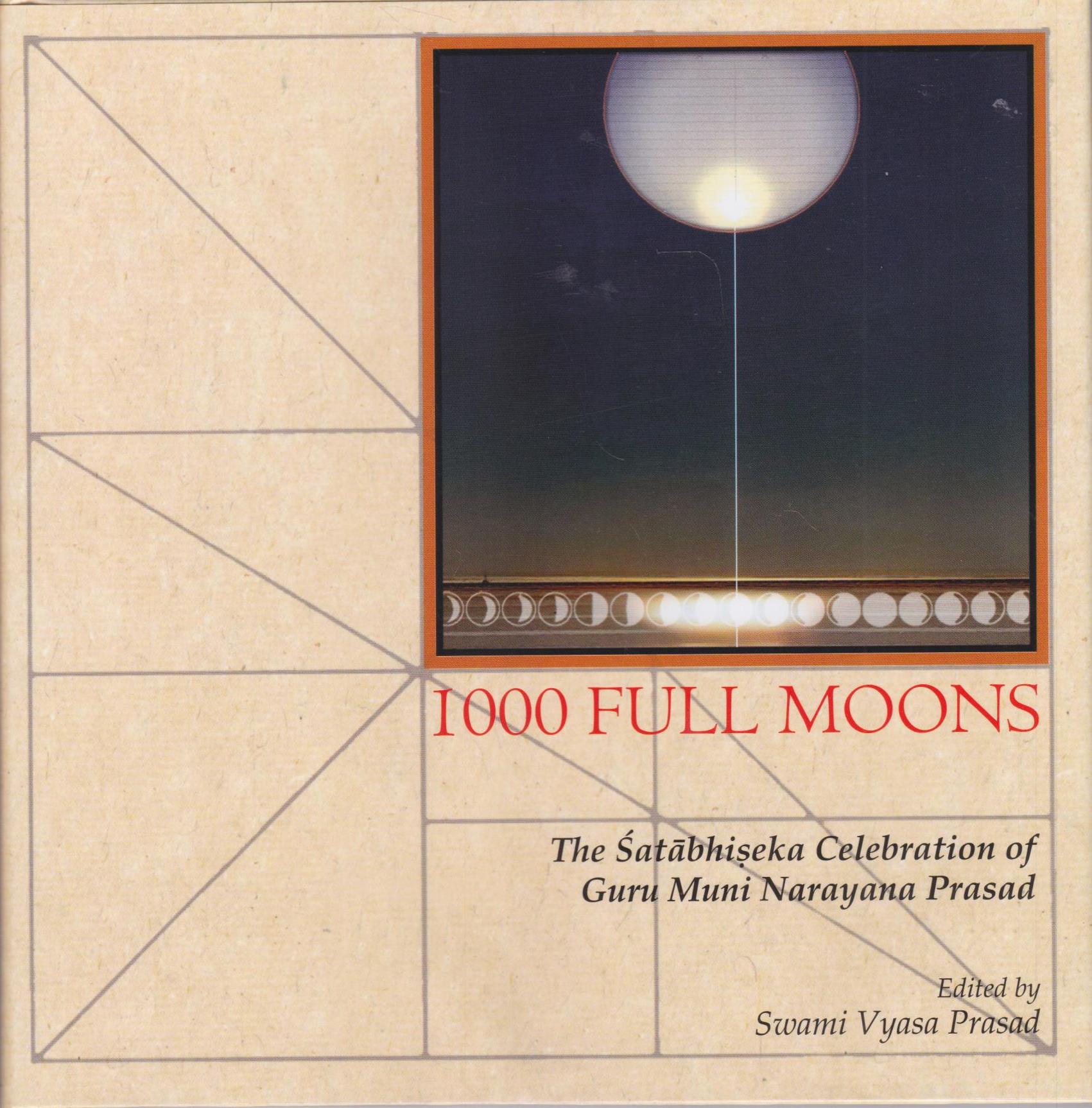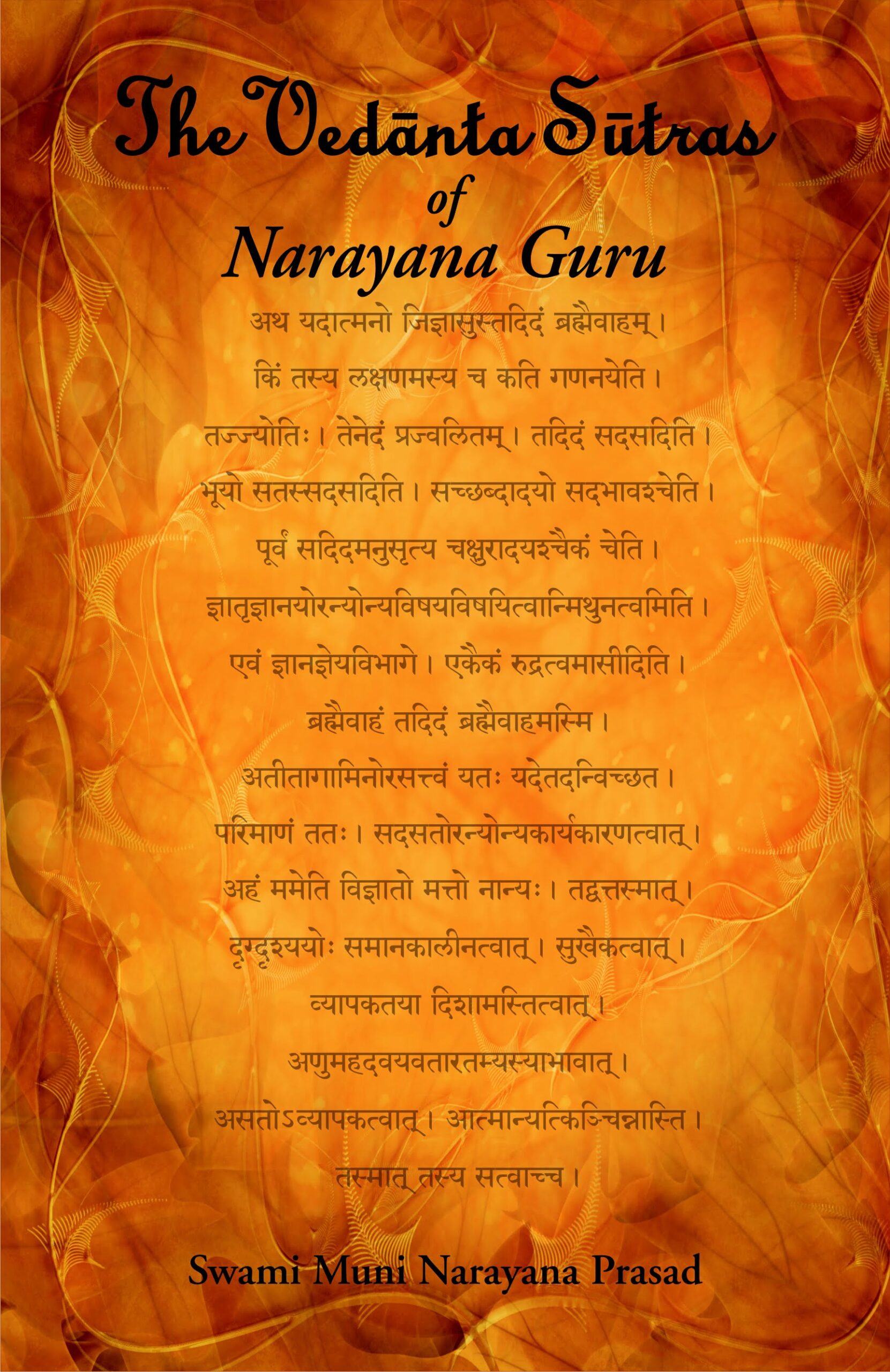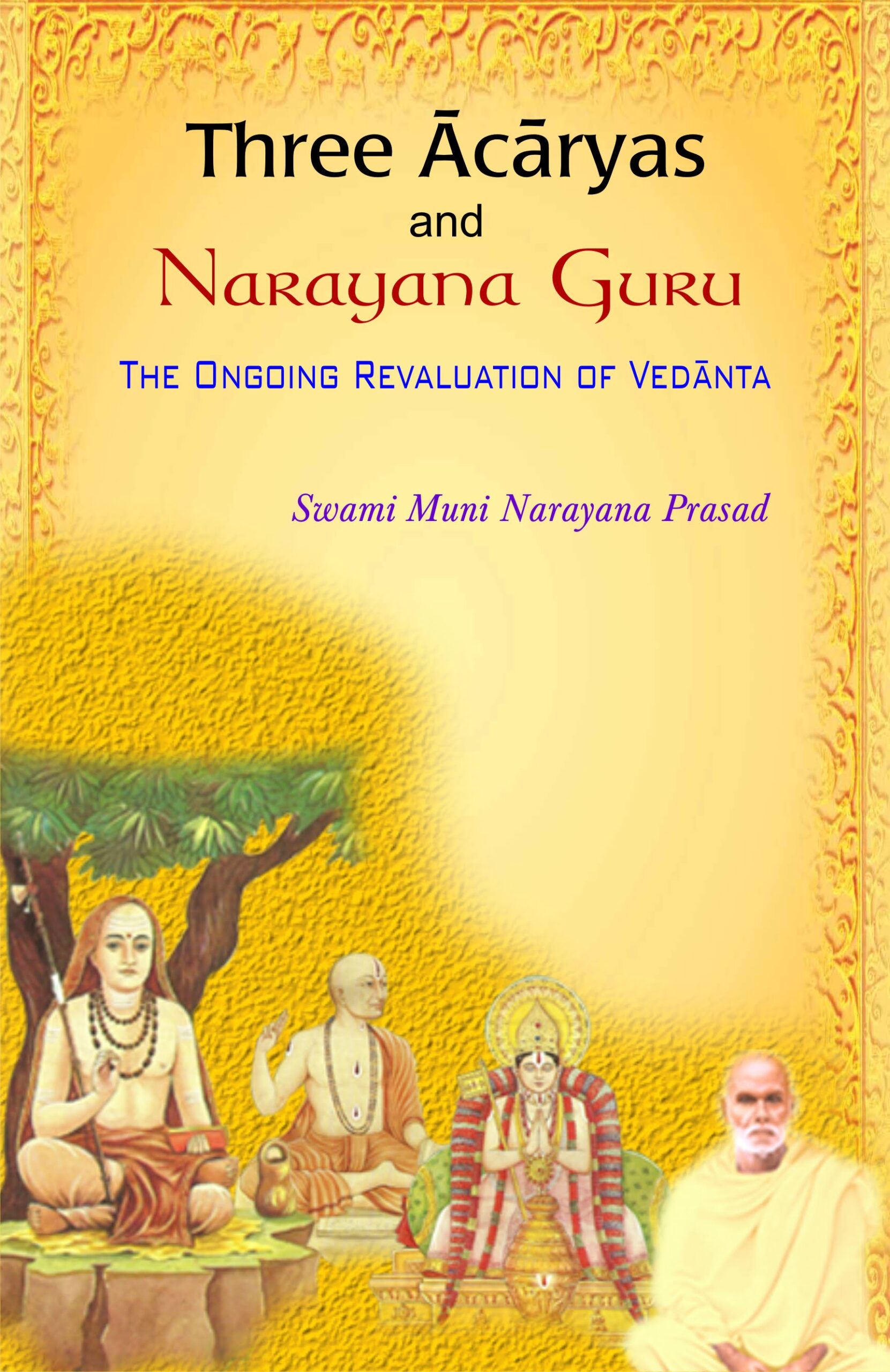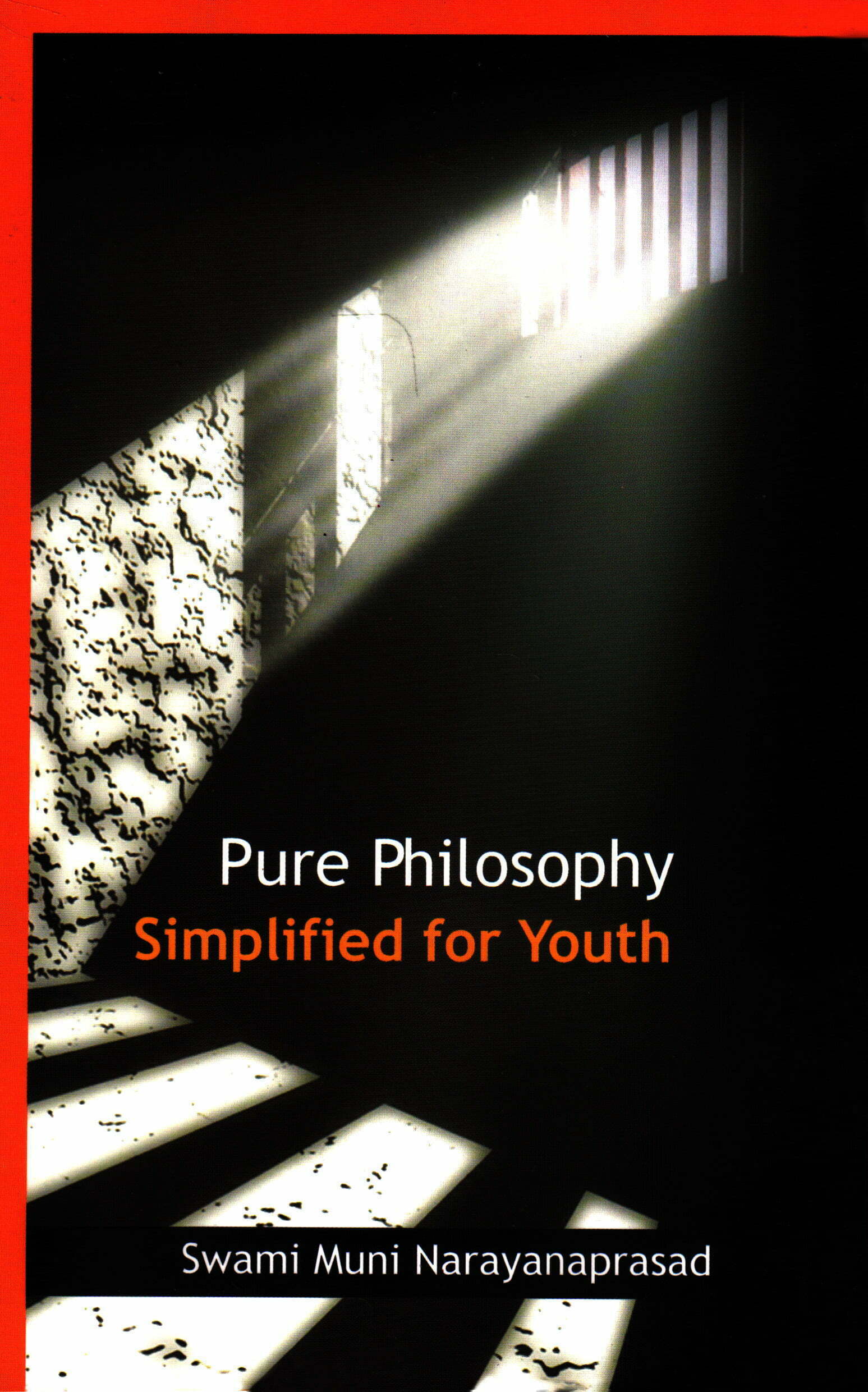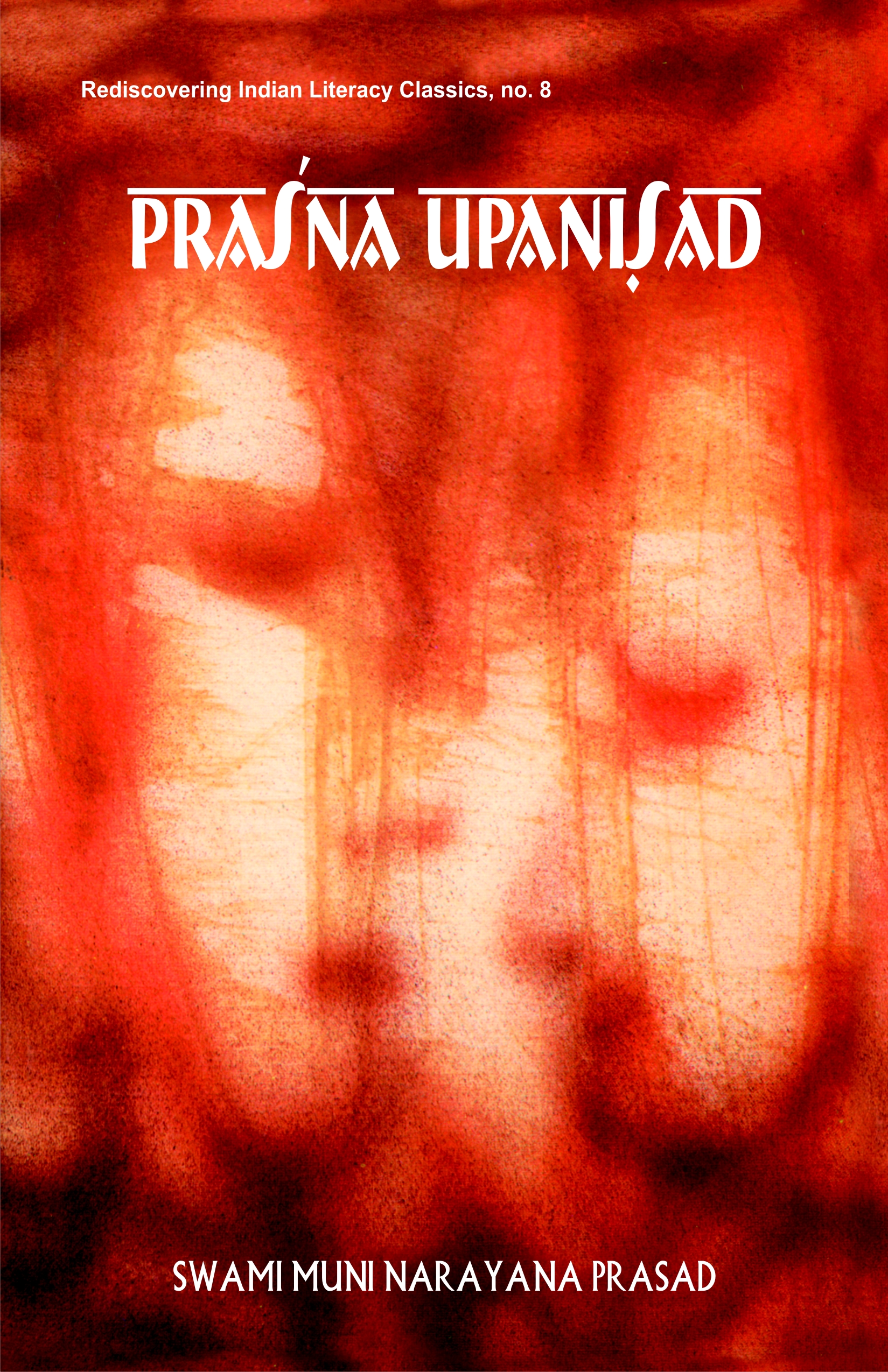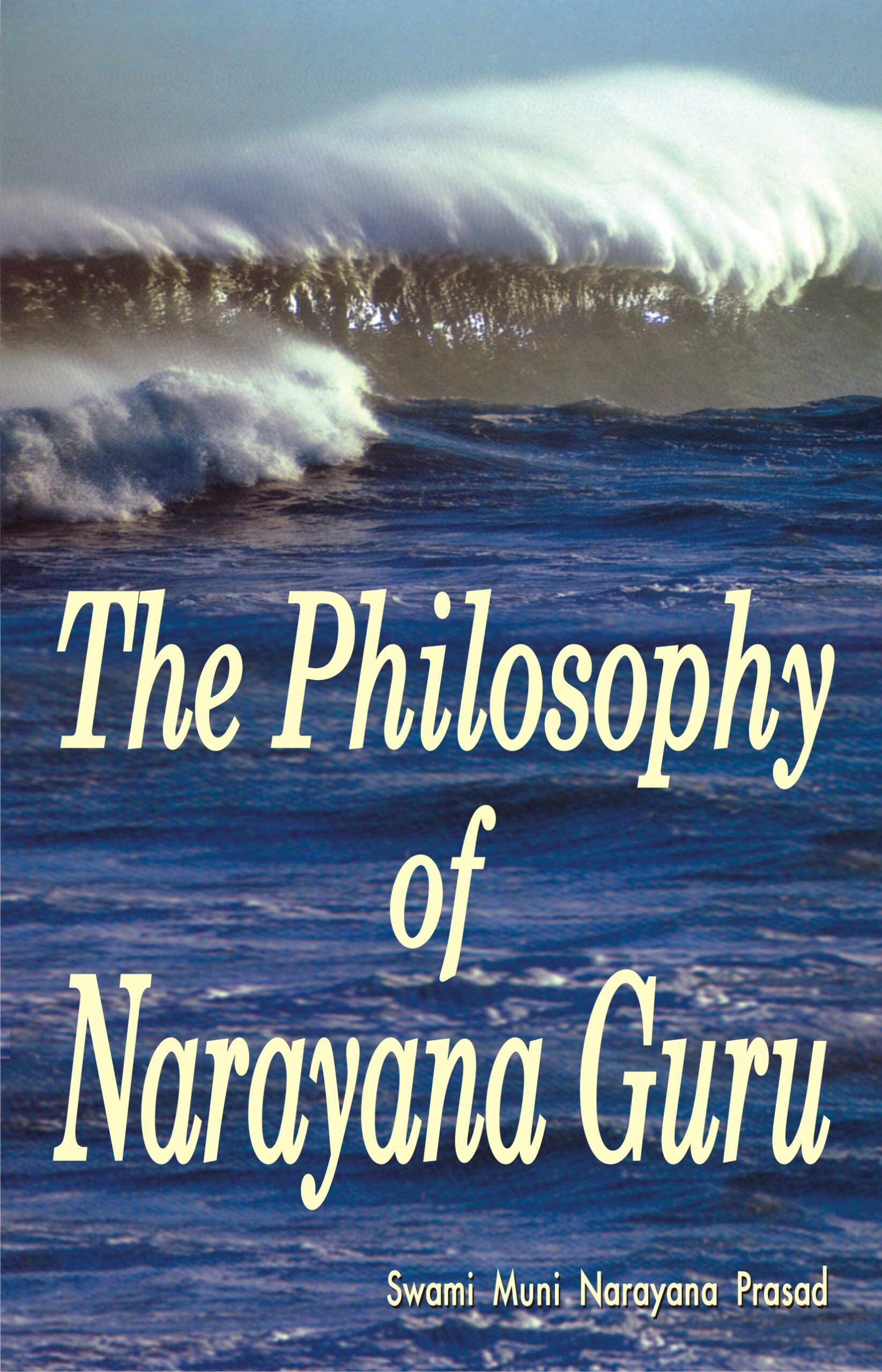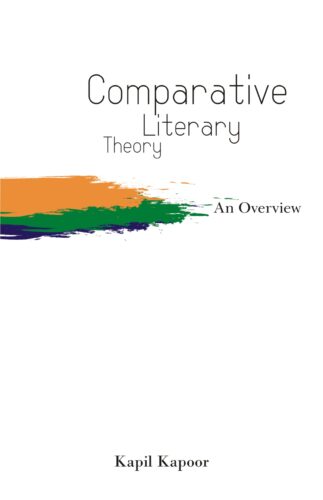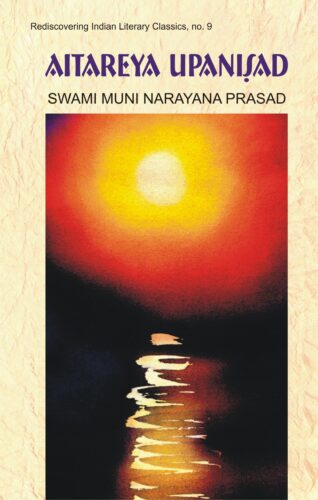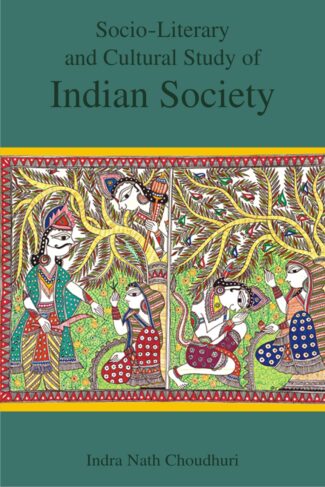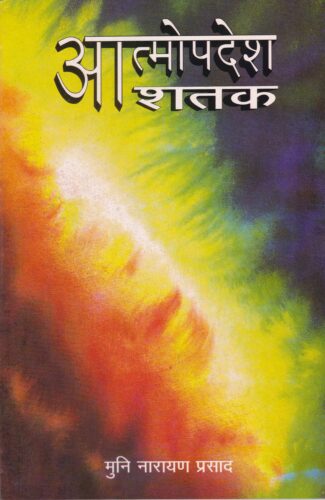
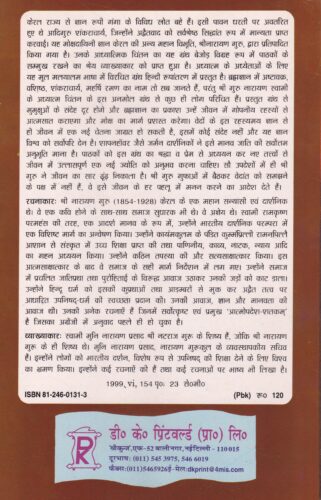
Atmopadesh Satak...
Atmopadesh Satak
One Hundred Verses of Self-Instruction by: Narayana Guru , Swami Muni Narayana PrasadAtmopadesa Sataka, mentioning one single principle, explains that mere virtue of gaining knowledge is not an end in itself. Its usefulness should be seen in the social, religious and veneration realms.
₹120.00 Original price was: ₹120.00.₹108.00Current price is: ₹108.00.
ISBN: 9788124601310
Year Of Publication: 1999
Edition: 1st
Pages : iv, 156
Language : Hindi
Binding : Paperback
Publisher: D.K. Printworld Pvt. Ltd.
Size: 22 cm.
Weight: 200
Atmopadesa Sataka, mentioning one single principle, explains that mere virtue of gaining knowledge is not an end in itself. Its usefulness should be seen in the social, religious and veneration realms.

- Sale!Comparative Literary Theory by: Kapil Kapoor
₹800.00Original price was: ₹800.00.₹720.00Current price is: ₹720.00.“Two cultures of the world — Greek and Indian — have nourished literature. While the contemporary Western thinking is rooted in Greek thought, especially of Socrates, Plato and Aristotle, and percolated down to the modern European languages with the advent of Christian thought, the multilingual Indian literary tradition has its base from the classical Tamil, Pali, Prakrt and Sanskrit.
Though cultural specificity marks these two traditions off from each other, the universal human condition that finds expression in all literatures binds them together. This book delves deep into the growth of poetics, theory of literature, literary artefacts, aesthetics of literature as an art form, and dramaturgy and philosophy of literature.
Cultures have given forms as their typical expressions — for India great epics, for Greece tragedies, and for England lyrics. Similarly, different ages of a culture find expression in different forms — Elizabethan age of England in lyrics, sixteenth-seventeenth centuries in drama, eighteenth century in prose, and nineteenth century in novel. India’s genius is in epics and its expression unfolds in sravya-preksa compositions, being singable poetry as its preferred form.
This book must serve pretty useful for students and teachers of literature. Also, an invaluable collection for researchers in literature.” - Sale!Rasa in Aesthetics by: Priyadarshi Patnaik
₹990.00Original price was: ₹990.00.₹891.00Current price is: ₹891.00.The Indian tradition of criticism is over two millennia old. And its rasa theory has, from the beginning, essentially influenced authors, connoisseurs and art critics alike. First expounded sometime between the 1st century bc and the fourth century AD in the eminent aesthetician, Bharata’s Natya Shastra, rasa theory deals with the ‘emotive content’ of a work of art — how it is depicted, inferred and transmitted. Dr. Patnaik’s book is a unique effort that demonstrates, with diverse examples, the universality of this ancient theory and its applicability to modern Western classics. Elucidating afresh the concept of rasa and all its nine primary kinds largely on the basis of Natya Shastra of Bharata and the commentaries of the tenth-century aesthetician, Abhinavagupta, the book investigates the validity of rasa theory as an aesthetic, more specifically, a literary theory, and how its canons are applicable to modern Western literature as well as Chinese love lyrics and Japanese haiku poems. Dr. Patnaik’s transcultural exploration, thus, covers all major genres of literature — poetry, drama and fiction; and also major writers — Lawrence, Mayakovsky, Kafka, Camus, Conrad, Hemingway, Faulkner, Marquez, Eliot, Hesse, O’Neill, Ionesco, Beckett, Lorca, Neruda and several others. In emphasizing the universal validity of the rasa theory, the author considers certain modern problems relevant to text, meaning and readers’/audiences’ response as well. Very few are the examples of applied rasa theory even in Sanskrit and other Indian literatures, leave alone its application to Western creative writing. This book, with its bold framework and lucid style, should, therefore, fascinate the scholars of Indology, Indian aesthetics and, above all, comparative literary criticism.
- Sale!Aitareya Upanisad by: Swami Muni Narayana Prasad
₹110.00Original price was: ₹110.00.₹99.00Current price is: ₹99.00.Yet another masterly piece of Hindu spiritual wisdom, Aitareya essentially reinforces the grand Upanishadic message which is neither a picturesque mythology nor a promise of heaven nor a threat of hell. It is yet another reminder (from the ancient seers) of our cosmic connection showing how this universe, this phenomenal world of ours, and all that is created, whether movable or immovable, are unfolded from one primeval casual Reality: atman, variantly called the Supreme Spirit, Pure Consciousness or Prajnanam Brahma; and how, in turn, atman perceives itself as the one underlying substance of all these phenomena. A distinguished exponent of Vedanta, Swami Muni Narayana Prasad reinterprets this Upanishad, developing refreshing insights into its textual discourse, its meaning, and its message. Also included in this critical commentary are its original Sanskrit text, Romanised transliteration, and verse for verse English translation. Appended to the Rigveda, Aitareya Upanishad comprises three chapters (IV-VI) of the Aitareya-Aranyaka which, in itself, is a continuation of Aitareya Brahmana. And as one of the principal Upanishads is invaluable as much to the discerning readers as to the scholars of Indian philosophy.
- Sale!Socio-Literary and Cultural Study of Indian Society by: Indra Nath Choudhuri
₹1,500.00Original price was: ₹1,500.00.₹1,350.00Current price is: ₹1,350.00.The Socio-Literary and Cultural Study of Indian Society from Ancient to Modern is a search for India’s heritage: Hindu, Sufi and about Nationalism and India’s freedom from her colonial past. It is analytical but not learnedness. The author believes as Iqbal, the famous Urdu poet, said: “Transcend your reason because though it is a glow, it is not your destination; it can only be the path to the destination show.” People, both Indian and foreign, who want to understand Indian heritage from Ancient to Modern in a simple, agreeable style and friendly manner, is the author’s destination. In this volume, he has tried to demolish many myths like dharma is religion, Vedas are Śruti though the Almighty ordered six ṛṣis to write them down. A Hindu is just not emotional in mind, he also believes in analytic discussion (tarka). Upaniṣads are not just created by ṛṣis but also by a revolution unfolded by the students by barraging questions after questions.By explaining about the vitality of India and many other subjects, the book elucidates many things about the idea of India in an authentic manner. The readers will find here many varieties of theological explication, ultimately leading to the celebration of life while searching for the divine and realizing the self.
- Sale!Vada in Theory and Practice by: Radhavallabh Tripathi
₹1,300.00Original price was: ₹1,300.00.₹1,170.00Current price is: ₹1,170.00.Vada, meaning debates, dialogues, discussions, was the quintessential of Indian spirit, enabling and promoting the growth of different philosophical and knowledge systems of India. It percolated deep into our mindset and enriched the moral, ethical, religious and sociocultural edifice of anything that was essentially Indian in nature. As continuation of Anvikshiki from the bc era, vada helped thrive Indian traditional knowledge systems. It subsists on diversity and its tradition envisages pluralism.
Most of our Sanskrit works, covering a wide gamut of knowledge systems, are structured in the techniques of debate. This reality applies not only to the philosophical writings, but to Indian medical systems (Ayurveda), Arthashastra of Kautilya and Kamasutra of Vatsyayana as well. Even great epics like Ramayana and Mahabharata are no exceptions.
Vada culture involved verbal duals, attacks and even violence of speech, and all major religious systems — old or modern — were parties to it. This book also elucidates how vata was vital and critical for the growth of our socio-political fabrics. It shows how some of the major conflicts in philosophical systems were centred around karma, jnana, choice between violence and non-violence, pravritti and nivritti. It also presents the manifestations of vada on a vast canvas during the nineteenth and twentieth centuries. Modern spiritual and religious gurus like Ramana Maharshi, J. Krishnamurti and Vinoba Bhave were men of dialogues. Our scholars have applied the varied techniques of vada against the philosophical and scientific systems of the West to prove them correct.
This collector’s issue should enthrall a wide audience of philosophers, scholars and believers in Indian knowledge systems.


